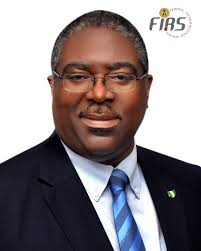The Executive Chairman of the Federal Inland Revenue Service, FIRS, Mr Tunde Fowler, said yesterday that the Service generated N4 trillion in form of tax revenue last year, representing about 20 percent or N800 billion higher than the total collections in the preceding year.
Fowler made the disclosure when his team paid a courtesy visit to the Oba of Lagos, His Royal Majesty Rilwan Babatunde Akiolu.
He explained: “The FIRS collects revenue on behalf of all tiers of government. The performance of the FIRS depends on the amount of revenue that is been divided on a monthly basis between the federal government, state and the local government.
“So we work with all the stakeholders making sure that we can support government in going forward. Just to put on record, with their support in 2017, the support of our father, the House committees on Finance and the House of Representative we were able to cross N4 trillion collection for the year 2017. This is about 20 percent higher than 2016 figures. In 2016 we generated N3.3 trillion. The way forward on how to support this country is Taxation.”
In his remarks, the Oba of Lagos, reiterated his call for special tax status for Lagos State in view of its socio-economic contributions to national development and more importantly, as the highest revenue generation state to the federation account.
The royal father said: “I want to talk personally to the National Assembly to present the case of why Lagos State and other deserving states should be given special tax. What the FIRS are going to make this year will be more than N4 trillion. I can assure you that 50- 70 percent of the N4 trillion generated last year is from Lagos State.”
Earlier in his remarks at a FIRS Management/Stakeholders’ Retreat titled: “Optimizing Tax administration with Parliamentary Synergy, Fowler had noted that the decline in receipts from oil revenue had affected many states in the country negatively and canvassed the need for them to explore avenues to boost their IGRs.
He clarified further: “We all recall that beginning from the second half of 2014, there has been a sustained decline in the global prices of oil. Oil revenue generated by FIRS in 2014 – 2.45 trillion; Oil revenue generated in 2015 – N1.29 trillion; FIRS oil revenue generated in 2016 – N1.16 trillion; FIRS oil revenue generated in 2017 – N1.52 trillion. This trend has had adverse effect on the ability of oil dependent countries to meet their development objectives.
“For us in Nigeria, the decline in receipts from oil revenue and the concomitant decline in accruals to states from the Federation Account have placed many states in a financial quandary to the point where basic obligations such as the payment of employee wages has become a perennial challenge. This is not the first time Nigeria will experience economic slow-down as a result of fluctuations in global oil prices”, the FIRS boss added.
Explaining the purpose of the retreat, Fowler said that “in addition to the traditional objective of reviewing past performance and setting targets for the future, we intend to discuss strategies for enhancing collaboration between FIRS and its critical stakeholders; particularly the National Assembly with the view of explaining details of our operations and ultimately to improve overall organizational performance to achieve 2018’s target in excess of N5 trillion yet to be approved by the distinguished members of the National Assembly.”
He urged all stakeholders to act differently this year by looking beyond oil as the mainstay of the country’s economy.






